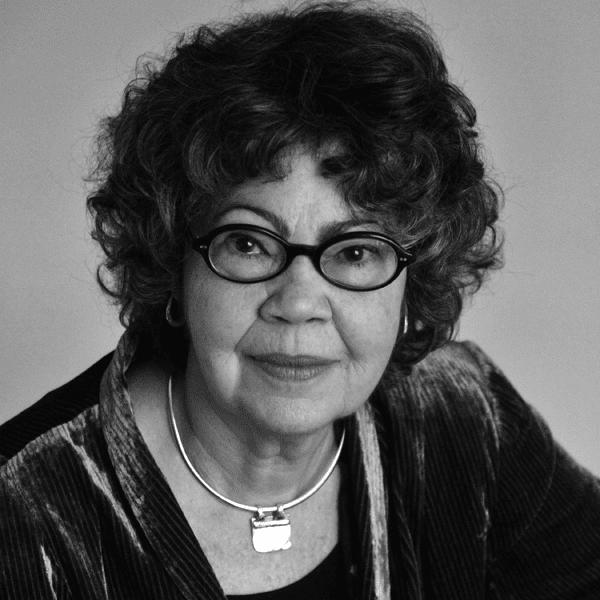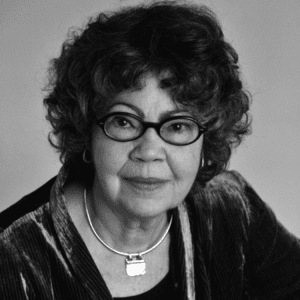Author of the Month: Olive Senior

Diaspora Dialogues
August 6, 2013


Tell us about yourself.
I was born and grew up in Jamaica. I now live in Toronto, but the Caribbean still remains central to my work and I travel there frequently—especially in winter! I like to say I have the best of both worlds. I have spent virtually all of my life engaged in writing of one sort or another. I started out as a journalist and studied journalism at Carleton University. Since then, I have worked as an editor, publisher, researcher, speech writer and in recent years I have taught writing or conducted writing workshops—I have been for some years on the faculty of the Humber School for Writers. I have published 14 books so far—I write fiction, poetry, non-fiction and my second children’s picture book will be published later this year. I am also trying my hand at writing a play. Most writers tend to stick to one genre—and publishers and booksellers love that too—but I have always liked the challenge of exploring different forms of writing. People ask me how I switch from one to the other but it’s not a conscious decision—whatever holds my interest usually arrives in the form it will take—whether as poetry, prose or children’s story. So expressing myself in different genres comes naturally to me. The exception is probably my latest book—a novel called Dancing Lessons. I had previously written only short stories and novellas and I thought I was writing a short story until I realised that the narrator had taken hold and would not let go until she had fully told her story—a couple of hundred pages later! Many writers choose one genre and stick to it. It’s a question of doing what feels comfortable to you. I certainly encourage beginning writers to experiment and try new forms, new approaches. “Playing around” is a good way of finding out what you are best at. It’s good to move out of your comfort zone. You might surprise yourself.
When did you realize you had a passion for writing?
I tell people that I decided to be a writer at the age of four. I don’t know if that is true but that is the age I learned to read and fell in love with words. After that, I always seemed to have my head buried in a book, though there were not too many available when I was growing up in a remote part of Jamaica. I went to high school in the town of Montego Bay where there was a library which seemed like heaven at the time.
But my love of words and I like to think my facility as a writer came not only from the language of books but also from what is called the oral culture—the stories, the tales, the songs from the people around me in my Jamaican mountain village. As children, our big nighttime entertainment was storytelling—we had stories of Anansi, the trickster god of West Africa brought to the Caribbean, we had duppy (ghost) stories, we had traditional tales of the Grimm brothers retold Caribbean style, we had Bible stories, tales and legends of Greece and Rome and stories about local people and events.
There was a kind of rhythm to life that I also think infused the way I write. People sang at all their tasks—from washing clothes to floor cleaning, planting yam or house building so as children we grew up to those rhythms as well. When I came to write as an adult, I found that what worked best was a fusion of the two traditions I grew up with—the scribal and the oral, which also means a fusion of English which is our official language and Jamaican creole which is the informal but pervasive language of the people.
Thinking of myself as a storyteller has kept me firmly focused at all times on the idea that I am communicating to a reader out there and this holds good for everything I write—from a poem to all the entries in my Encyclopedia of Jamaican Heritage. Traditional storytelling can only happen if there is an audience present and the audience of my childhood gave immediate feedback to the teller—a story would be deemed “sweet” or satisfying if everyone enjoyed it to the end; “sour” if it was deemed boring. I am always desperately trying to avoid the latter judgement.
What pieces of writing/authors have had the greatest impact on you?
This is hard to answer because different writers have affected me at different points in my life—some because of what they had to say, others by how they say it. I have to confess though that I am still engaged with some of the writers of my youth such as Charles Dickens whom to my mind is the greatest storyteller (though he could have done with a good editor!) When I was learning to write as a teenager and young adult, I was very much shaped by the so-called English literary canon as well as the European, later by the American. My introduction to Canadian literature has come much later in my life. I think the books that have had the greatest impact in shaping me as a writer were those which first presented me with a world with which I could identify. In my early teens before there was much Caribbean literature available I found my multi-cultural world mirrored in books from the American south such as those of Truman Capote or Carson McCullers. Of course since then, there have been endless books from America, the Caribbean, Africa and elsewhere which have presented a world which includes people who are not all European (as all the books of my childhood did). Much later, I discovered Latin American writers such as Gabriel García Márquez, Mario Vargas Llosa, and above all Jorge Amado of Brazil who presented a world that was closer to my own in which life was not all rational and linear but infused with magic, the irrational and the unexplainable.
How and when do you find time to write?
I literally have to carve writing time from my daily activities which are taken up with earning a living. Sorry, folks, but writing alone will hardly provide you with a livelihood which is why most writers are also engaged in other activities. But I have no patience with people who say “I have no time to write” because I believe if writing is your imperative then somehow or other, you will find time to do it. I have got all my books written in between doing a million other things, including travelling. I have to confess though that my approach to writing depends on the type of book I am working on. My non-fiction books—such as the one I am writing now—usually require a lot of research which requires commitment to blocks of time which means planning and carving out space. But a lot of my other work (fiction, poetry) tends to get done in my head—until I can find the time to write it down. So, another confession, I am not the type of writer who writes every day. I tell myself that a lot is going on in my unconscious even when I am not sitting at my computer. Outside of non-fiction then, I tend to sit and write when the material has been processed and ready. But each of us has to develop a writing style of our own that best suits our personality and circumstances. The lesson is: stop making excuses.
What has been some of the biggest challenges you’ve faced as a writer?
The biggest challenge is what I have said above: finding the time to get it done. I wish I could just sit and write and do nothing else. Choosing to commit to writing means sacrifice and commitment. Of course like most writers, there is also the challenge of getting published, especially in a climate when the ground rules keep changing. I have been fortunate that I have managed to get my work published and noticed internationally—reviewed, written about and sometimes taught in schools and universities. But the status of a “literary writer” is different from that of a “popular” writer who is more likely to get the money and fame. I personally think there is room for all forms of writing. If you want to write, it doesn’t matter what you choose to write about—be honest about what you want to achieve and aim to be good at it. Above all, learn your craft. The best way to do this is by reading books in the genre you want to write in. Writing is language-based, so master language.
How have you changed as a writer over the years?
I hope I keep on getting better. I certainly don’t think I know everything and I am always striving to outdo myself. When I started to write, I knew nothing about process—I never had classes or writing mentors. So I am largely self-taught as are most writers I know. I had a very thorough education though that was grounded in language and I learnt to write from reading (still the best way). But I did not have a vocabulary for the craft of writing. I wrote short stories (and my first book Summer Lightning won the Commonwealth Writers Prize) but I could not have given a definition of what a “short story” was. I simply wrote intuitively. I think the great change for me has come about because once I was published I was asked to conduct writing workshops and to teach writing and talk about it. This forced me to learn all about writing techniques. I was versed in the craft of writing but I had to learn to deconstruct what I was doing and understand how it all fitted together. All of this has helped me to see how attending writing courses can help the writer learn in a short time what people like me learned over a long time by trial and error, so it can short-circuit the process. It can assist the young writer to focus on the craft and develop self-criticism, as well as confidence. Above all, it can provide the most important ingredient of all which is feedback from a trusted mentor. Over the years, I have learnt to be much more conscious of what I am doing as a writer, but whether this is a good thing or not is for readers of my work to say.
